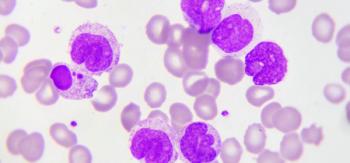
Patients with CLL may have genetic mutations that predict response to different treatments.

Patients with CLL may have genetic mutations that predict response to different treatments.

Current FDA-approved CAR-T cell therapies express CARs recognizing CD19, which is expressed on the surface of almost all B cells, making these therapies specific for B-cell malignancies.

As the growth of specialty continues at a record pace, pharmacy must keep up with new distribution trends as an oncology product’s supply chain of a product can take many paths.

Monotherapy with talazoparib demonstrated encouraging antitumor activity in patients with DNA damage repair mutations and docetaxel pretreated metastatic castration-resistant prostate cancer.

HER2 is a membrane-bound tyrosine kinase that when amplified contributes significantly to a tumor’s ability to proliferate and survive.

To stay up-to-date on the latest in oncology pharmacy, make sure to check out the slate of programming that will be offered this year through our Directions in Oncology PharmacyTM series.
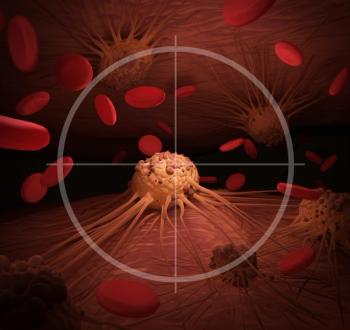
Patients with ulcerative colitis have an increased risk of developing colorectal cancer (CRC), are diagnosed with less advanced CRC, and are at increased risk of death from CRC.

Guidelines indicate that there are a number of treatment options for head and neck cancers.

Patients diagnosed with Crohn disease and colorectal cancer (CRC) have a higher rate of mortality than patients without Crohn disease who are also diagnosed with CRC.

In a Directions in Oncology PharmacyTM Peer Exchange series, experts explained the right time to use bevacizumab, either as a front-line therapy or at the time of disease progression.

In a Directions in Oncology Pharmacy Peer Exchange series, experts discuss the PRIMA trial and the rationale for using PARP inhibitors.

Enfortumab vedotin-ejfv in combination with the anti-PD1-therapy pembrolizumab for the treatment of patients with unresectable locally advanced or metastatic urothelial cancer who are unable to receive cisplatin-based chemotherapy in the first-line setting.

The FDA has accepted Genentech’s supplemental biologics license application (sBLA) and granted priority review for atezolizumab (Tecentriq) as a first-line monotherapy for some patients with advanced non-squamous and squamous non-small cell lung cancer (NSCLC).

In the pivotal phase 3 KEYNOTE-355 study, pembrolizumab (Keytruda, Merck) combined with chemotherapy met one of its dual primary endpoints of progression-free survival (PFS) as a first-line treatment for patients with metastatic triple-negative breast cancer (TNBC) whose tumors expressed programmed death-ligand 1 (PD-L1).

The DKFZ discovered traces of a total of 23 different virus types in 356 patients with cancer. The most common drivers of tumor initiation and growth were found, including the genome of Epstein-Barr viruses (EBV) and hepatitis B virus (HBV).

Physicians treating patients with platinum-sensitive ovarian cancer can choose from a range of therapies, including doublet chemotherapy with or without bevacizumab (Avastin) and PARP inhibitors.
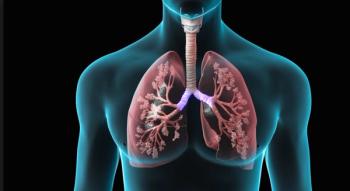
There are 5 available EGFR TKIs for the treatment of patients with EGFR-mutant lung cancers: gefitinib (Iressa), erlotinib (Tarceva), afatinib (Gilotrif), dacomitinib (Vizimpro), and osimertinib.

The Fair Access to Cancer Treatment Act is expected to be signed by Governor Tom Wolf in the near future.
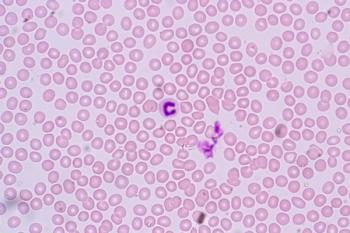
CAR NK cells are allogenic, which is defined as taking the cells from a non-related healthy donor rather than the patient themselves. Therefore, CAR NK cells have the potential to be manufactured in advance and stored for off-the-shelf immediate use.

Based on molecular similarities in human and canine diffuse gliomas, researchers have posited that working to cure brain cancer in dogs may lead to improved treatments and even a cure for humans.

Positive results were based on the PROSPER trial, which evaluated the overall survival of enzalutamide plus androgen deprivation therapy versus standard of care.

Capmatinib is an investigational, oral, and selective MET inhibitor, and if approved, it will be the first therapy to specifically target METex14 mutated advanced lung cancer, according to the company.

While KTE-X19 is not yet approved in any country, its Marketing Authorization Application has been validated in the European Union, and its target action date in the United States is August 10, 2020.

Two studies published in The Lancet have developed models to examine what may happen if the World Health Organization commits to a 3-part strategy to end cervical cancer.

Clinical trials are now evaluating the potential combination of PARP inhibitors with immunotherapy or other agents in patients with ovarian cancer.

Meaningful improvements in outcomes with immunotherapy in recent years are finally starting to change the tide for the first-line treatment of patients with small-cell lung cancer.

Treatment with niraparib resulted in a 38% reduction in the risk of disease progression or death in the overall study population compared with placebo.
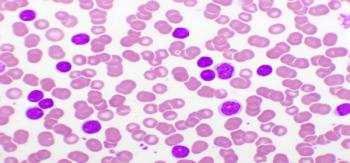
With emerging research from The Sidney Kimmel Cancer Center-Jefferson Health, outcomes in patients with uveal melanoma that has metastasized were shown to significantly improve with changes in treatment.

A study conducted by LSU Health found that by the time recommended screening for colorectal cancer begins, the disease has already spread in a high percentage of patients.

New technique addresses the tendency of most CAR-T therapies to provoke immune responses against healthy tissues in patients.